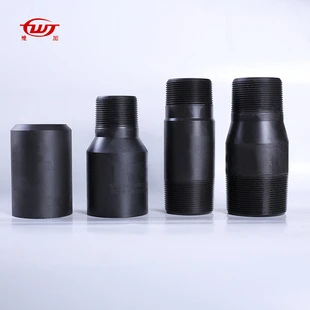- Afrikaans
- Albanian
- Amharic
- Arabic
- Armenian
- Azerbaijani
- Basque
- Belarusian
- Bengali
- Bosnian
- Bulgarian
- Catalan
- Cebuano
- Corsican
- Croatian
- Czech
- Danish
- Dutch
- English
- Esperanto
- Estonian
- Finnish
- French
- Frisian
- Galician
- Georgian
- German
- Greek
- Gujarati
- Haitian Creole
- hausa
- hawaiian
- Hebrew
- Hindi
- Miao
- Hungarian
- Icelandic
- igbo
- Indonesian
- irish
- Italian
- Japanese
- Javanese
- Kannada
- kazakh
- Khmer
- Rwandese
- Korean
- Kurdish
- Kyrgyz
- Lao
- Latin
- Latvian
- Lithuanian
- Luxembourgish
- Macedonian
- Malgashi
- Malay
- Malayalam
- Maltese
- Maori
- Marathi
- Mongolian
- Myanmar
- Nepali
- Norwegian
- Norwegian
- Occitan
- Pashto
- Persian
- Polish
- Portuguese
- Punjabi
- Romanian
- Russian
- Samoan
- Scottish Gaelic
- Serbian
- Sesotho
- Shona
- Sindhi
- Sinhala
- Slovak
- Slovenian
- Somali
- Spanish
- Sundanese
- Swahili
- Swedish
- Tagalog
- Tajik
- Tamil
- Tatar
- Telugu
- Thai
- Turkish
- Turkmen
- Ukrainian
- Urdu
- Uighur
- Uzbek
- Vietnamese
- Welsh
- Bantu
- Yiddish
- Yoruba
- Zulu
Casing Connections and Threading Techniques for Enhanced Oil Well Performance
Understanding Casing Threads and Couplings Essential Components in Oil and Gas Operations
In the oil and gas industry, the exploration and extraction processes involve various specialized equipment to ensure safety, efficiency, and performance. Among these components, casing threads and couplings play a critical role in maintaining the structural integrity of wells and facilitating the connection between different sections of casing. This article delves into the significance, types, and standards related to casing threads and couplings in the oil and gas industry.
What Are Casing Threads and Couplings?
Casing threads are the helical grooves cut into the ends of casing pipes, which are used to connect two sections of a casing string. These threads enable a secure physical attachment between pipes, allowing for optimal pressure containment and structural support during drilling and once the well is in production. Couplings, on the other hand, are short lengths of pipe designed to join two pieces of casing together. They have matching threads on both ends and serve as an essential intermediary component within the piping system.
Importance of Casing Threads and Couplings
Casing threads and couplings are critical for several reasons
1. Structural Integrity The strength and reliability of casing threads and couplings directly influence the well's ability to withstand pressures from the oil and gas present underground. Properly designed and installed threads ensure that the casing can handle the stresses associated with deep drilling and high-pressure formations.
2. Preventing Leaks A crucial function of casing systems is the prevention of fluid migration between geological layers. High-quality threads and couplings reduce the risk of leaks that could lead to environmental contamination, loss of product, or safety hazards during extraction processes.
3. Facilitating Installation Casing threads designed for easy and accurate alignment simplify the installation of casing systems. Proper connections reduce the risk of mishaps during the complex task of running casing into the wellbore.
casing threads and couplings

Types of Casing Threads
Different types of casing threads are employed in the oil and gas industry. Some common thread designs include
- API (American Petroleum Institute) Threads These are standardized threads outlined in API specifications, widely used across the industry. API threads have proven their reliability and robustness, making them a preferred choice for many operators.
- Premium Threads Designed for high-performance applications, premium threads provide enhanced sealing capabilities and increased resistance to deformation under high-stress conditions. These threads are particularly beneficial in high-pressure, high-temperature wells.
- Specialty Threads In certain challenging environments, such as deepwater drilling or unconventional resource extraction, specialty threads may be used to address specific needs. These threads might be customized for conditions like corrosion resistance, higher torque tolerance, or unique sealing properties.
Industry Standards and Regulations
The design and manufacture of casing threads and couplings must comply with various industry standards and regulations to ensure safety and performance. Organizations such as the API and the ISO (International Organization for Standardization) provide guidelines regarding material specifications, threading designs, and testing procedures. Compliance with these standards is essential for operators to mitigate risks and maintain the integrity of their drilling operations.
Conclusion
Casing threads and couplings may seem like small components in the broader scheme of oil and gas extraction, but their importance cannot be overstated. They provide the necessary structural integrity, help prevent leaks, ease installation, and contribute to cost-effective operations. As the industry continues to evolve with advancements in technology and more demanding environmental regulations, the development and innovation of casing threads and couplings will remain vital to the safety and efficiency of oil and gas operations. Understanding these components is crucial for industry professionals, as it enhances decision-making processes and the overall success of drilling endeavors.
-
Tubing Pup Joints: Essential Components for Oil and Gas OperationsNewsJul.10,2025
-
Pup Joints: Essential Components for Reliable Drilling OperationsNewsJul.10,2025
-
Pipe Couplings: Connecting Your World EfficientlyNewsJul.10,2025
-
Mastering Oilfield Operations with Quality Tubing and CasingNewsJul.10,2025
-
High-Quality Casing Couplings for Every NeedNewsJul.10,2025
-
Boost Your Drilling Efficiency with Premium Crossover Tools & Seating NipplesNewsJul.10,2025







